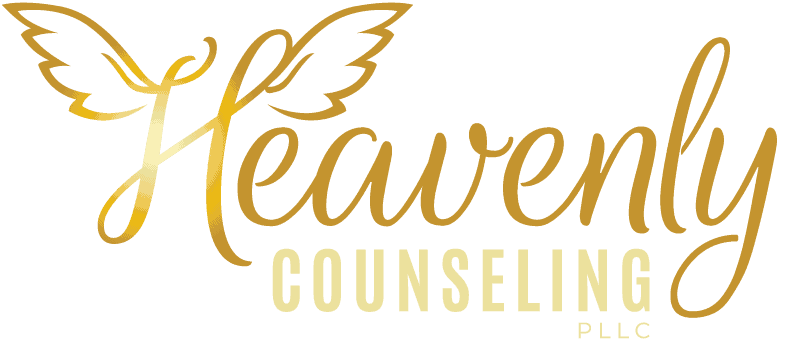Life After COVID – How Much Anxiety is Normal?
Think back to just over a year ago when COVID started, and the world came to a screeching halt. Everything you knew about your day-to-day life was no longer true. Anxiety sets in as you stayed behind closed doors, afraid to get close to anyone.
You slowly adjust to the “new normal,” and life goes on. Now jump forward again to the news a vaccine is on its way. For the first time in a long time, you begin to realize that people will watch movies in theatres and have lunch in a restaurant and work at a desk in an office. You can start getting back to the activities you enjoy with the people you want to be around.
Yet, as wonderful as this is, you find you are reluctant and anxious about returning to your pre-COVID routine. You may even turn down invitations even though you feel confident you will be safe from COVID.
Life transitions cause anxiety, especially when the future is uncertain. How much anxiety is expected, and how much is too much?
Is Returning to Society Causing Anxiety Disorders?
It isn’t that simple. Cause and effect are easy to see with things like, when you touch a hot pan, you will get burned, or if you don’t brush your teeth, you will get cavities.
But when you are talking about mental health, it isn’t as clear-cut. When a person develops a mental health problem after a severe life event, they likely had other things happening that put them at a higher risk in the first place.
Other contributing factors include but are not limited to:
- Genetic factors
- Personal psychiatric history
- Abusive or adverse childhood trauma
- Certain personality characteristics.
So, though the pandemic and its aftermath may create a tense atmosphere, it will usually only transition into a disorder if the person was already at risk for it.
Post-Pandemic Anxiety – When It’s Normal
Before the pandemic, it was easier to know if you were anxious and what you might be anxious about. Typical anxiety drops in on everyone at one time or another, and different situations cause different reactions.
Now, (almost) after the pandemic, everyone is again feeling a rise in their anxiety level for many reasons. You may feel stressed and a little tired. Maybe you have physical symptoms like stomach pain or headaches. Even so, you can form a plan of action and develop new routines that help you get through your day.
Post-Pandemic Anxiety – When it’s Too Much
Anxiety can be just that, or it can be Generalized Anxiety Disorder, which is a DSM-5 diagnosis. And just like all other mental health disorders, it has a list of symptoms and other requirements you have to meet to be diagnosed.
The intensity and duration of the symptoms are also considered since nearly everyone can experience anxiety anywhere from a few hours to several days.
When trying to decide if you are experiencing normal anxiety or struggling with a disorder, keep in mind three things.
Symptoms have consistently lasted weeks or months –
If the thought of post-pandemic activities has you trying to catch your breath or gets your heart racing, that is expected. But if the feeling continues all day, every day, with no real breaks, you need to seek support.
Your symptoms are disrupting your daily life –
It may be hard t determine if your day-to-day life is being interrupted since it is entirely different than it was a year ago. However, you have settled into a new routine, new ways of interacting with friends and family, and new fun activities in that time.
For example, if you find that you start to clean the kitchen and it takes you twice as long because you have difficulty concentrating, you will need to adjust the rest of the day’s chores. But if you begin to clean the kitchen and it never gets done, that would disrupt the day entirely.
Other disruptive behaviors include increased irritability. Things that didn’t bother you before upset you now, and you start a fight. Also, activities or hobbies you once enjoyed are too exhausting to bother with, indicate you don’t have the mental energy available after dealing with other stressors.
Your symptoms are getting worse or are severe –
For symptoms to be severe, they must interrupt your day-to-day life. Amid the pandemic and reentry into the world, that may be hard to judge. Daily life is already disrupted, so how much disruption is actually due to anxiety?
A good way to evaluate the severity of disruption is to notice whether or not you can practice basic self-care. Can you get out of bed in the morning, or do you spend most of the day there? Moving from the bed to the couch and back doesn’t count as getting up. What about showering, brushing your teeth twice a day, and eating?
If you can’t meet your most basic needs, you likely need help. Reaching out for support as you navigate the ins and outs of reassimilation into social life can significantly reduce your anxiety level and ensure you never miss a step.
What now?
There are a ton of questions remaining about the long-term effects of COVID on physical and mental health. The answers will come with time, and research, and clinicians and therapists will find the best course of treatment.
In the meantime, there are many ways therapy can help you adjust without all the fear. Rather than be set on finding a label that fits your symptoms or feelings, accept that you are anxious and know that so are thousands of other people. Don’t rush yourself. Remember, slow and steady wins the race.
